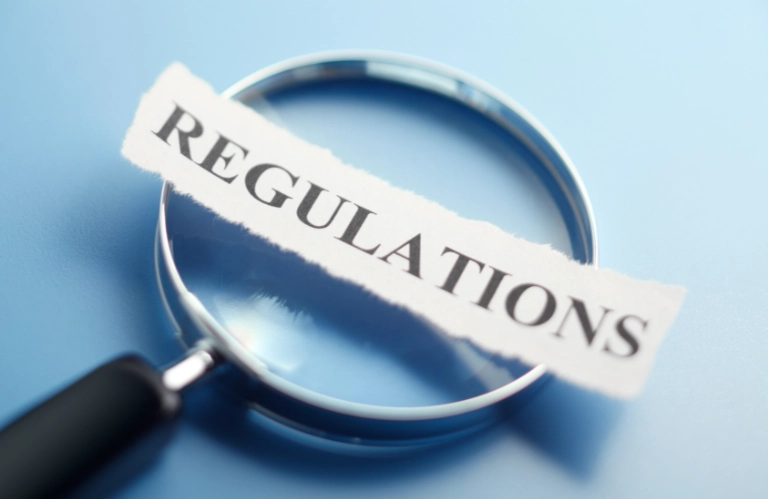The Asian forex market stands as a vibrant and dynamic arena for currency trading, serving as a pivotal component of the global financial landscape. With diverse economies and thriving markets, countries in Asia have emerged as prominent players in this domain. However, behind the scenes lies a complex legislative framework that regulates and oversees forex trading activities. This is what we will describe below.
Asian Forex Market – Examples of Top Asian FX Countries
The Asian forex market continues to demonstrate its resilience and significance in today’s global financial landscape. Boasting a diverse range of economies and rapidly expanding markets, Asia has become a powerhouse in forex trading. As for regulation, countries in the region have established robust frameworks to oversee forex activities and maintain market integrity. Regulatory bodies, such as the Monetary Authority of Singapore (MAS), the Financial Services Agency (FSA) in Japan, and the Securities and Futures Commission (SFC) in Hong Kong, play pivotal roles in ensuring compliance and investor protection.
Asia’s forex market has garnered a reputation for its commitment to security and transparency. Regulated brokers are required to meet stringent licensing requirements, adhere to capital adequacy standards, and implement anti-money laundering (AML) and know-your-customer (KYC) protocols. These measures contribute to a safer trading environment, instilling confidence among investors. According to these measures, the choice of great brokers is vast. It is quite simple to find top rated Asian Forex brokers and start trading safely.
The region’s reputation for stability, coupled with its vibrant market opportunities, positions the Asian forex market as an attractive destination for traders seeking both security and growth potential.
Japan
The forex market in Japan is regulated by the Financial Services Agency (FSA) under the jurisdiction of the Financial Instruments and Exchange Act (FIEA). The FSA sets stringent requirements for forex brokers, including capital adequacy, risk management, and segregation of client funds. Brokers must obtain a license from the FSA to operate in Japan.
The Japanese forex market has gained a reputation for its strong regulatory framework, investor protection, and market integrity. The FSA’s strict oversight aims to ensure fair trading practices, transparency, and stability. With its well-established financial infrastructure, advanced technology, and deep liquidity, the Japanese forex market attracts both domestic and international traders. The market’s reputation for security and reliability has contributed to its popularity and solidified its position as a key player in the global forex industry.
Singapore
In Singapore, the Monetary Authority of Singapore (MAS) assumes the responsibility of regulating the forex market in accordance with the Securities and Futures Act (SFA). The MAS plays a vital role in implementing a thorough regulatory framework that governs the operations of forex brokers in Singapore. It mandates strict licensing requirements, capital adequacy standards, and robust risk management practices.
Singapore\’s forex market is highly regarded globally for its exceptional reputation. It is recognized as a leading financial hub and a preferred destination for forex trading. The market benefits from a robust regulatory environment, advanced infrastructure, and technological advancements. With its strong regulatory oversight, deep liquidity, and well-established financial institutions, the Singapore forex market offers traders a secure and transparent environment. The market’s reliability, transparency, and reputation for excellence have contributed to its prominence and appeal among traders worldwide.
Hong Kong
In Hong Kong, the Securities and Futures Commission (SFC) oversees the regulation of the forex market, operating under the framework of the Securities and Futures Ordinance (SFO). The SFC is responsible for enforcing strict regulatory measures aimed at safeguarding the integrity of the forex market. Forex brokers in Hong Kong must obtain a license from the SFC and adhere to strict requirements, including capital adequacy, risk management, and client fund protection.
The regulatory framework in Hong Kong is highly regarded for its high quality and effectiveness. The SFC is known for its robust oversight and enforcement, ensuring market transparency and investor protection. The regulations aim to maintain market integrity, prevent financial crimes, and foster fair trading practices. The Hong Kong forex market’s reputation for strong regulations and regulatory compliance has attracted both domestic and international investors. Traders in the market can have confidence in the transparency, reliability, and security provided by the regulatory framework.
Challenges in the Asian FX Market
The Asian forex market faces several challenges that need to be addressed within the regulatory framework. One of the key challenges is harmonizing regulations across different jurisdictions in the region. As each country has its own regulatory requirements and frameworks, achieving consistency and standardization can be complex, hindering cross-border activities and creating regulatory arbitrage opportunities.
Another challenge is keeping pace with rapidly evolving technological advancements. With the rise of digital platforms, algorithmic trading, and cryptocurrencies, regulators need to adapt their frameworks to address emerging risks and ensure investor protection in these new areas. Additionally, enforcing regulations and combating unauthorized or unregulated forex activities remains a challenge. Regulators must stay vigilant in monitoring and taking action against fraudulent brokers, money laundering, and other illicit activities that pose risks to investors.
Promoting international cooperation and information sharing among regulatory bodies is crucial to address these challenges effectively and fostering a harmonized and secure environment for forex trading in Asia.








